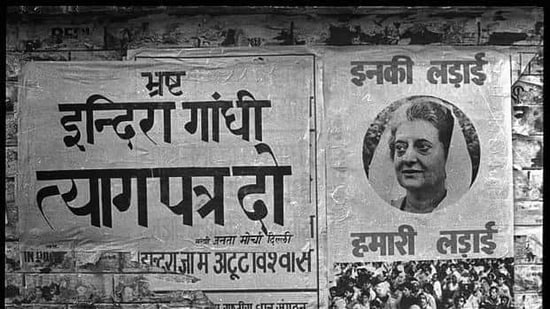June 25: On this day in 1975, Indira Gandhi imposed the Emergency. What remains of its legacy?
The chequered legacy of the Emergency, imposed by Indira Gandhi on June 25, 1975, meant that the topic would forever remain hotly contested in India's hyperpartisan political climate, even nearly half a century later.
June 25, 2021, marks the 46th anniversary of the Emergency, a historically relevant phase in India's years. It was on this day in 1975 that Fakhruddin Ali Ahmed, the then president of India, announced a state of emergency across the country on the recommendation of the Indira Gandhi-led Congress government at the Centre. The Emergency remained in effect from June 25, 1975, to March 21, 1977, and is, to this date, one of the highly-debated chapters in academic and political circles when talking about modern Indian history.

Also Read | Indira Gandhi’s Emergency and the story of a Punjab student leader
The Emergency is often regarded as a dark phase in independent India's history because this period was marked by unbridled state incarceration, stifling of dissent, and government crackdown on civil liberties. There were reports of frequent human rights violations and the press being censored to a repressive extent.
The court verdict that prompted Indira Gandhi to declare Emergency
The June 12, 1975 verdict of the Allahabad High Court convicting then Prime Minister Indira Gandhi of electoral malpractices and debarring her from holding any elected post was one of the factors that led to the imposition of the Emergency.
Indira Gandhi had won the 1971 Lok Sabha election from Rae Bareli Lok Sabha seat in Uttar Pradesh convincingly defeating socialist leader Raj Narain, who later challenged her election alleging electoral malpractices and violation of the Representation of the People Act, 1951. It was alleged that her election agent Yashpal Kapoor was a government servant and that she used government officials for personal election related work. While convicting Indira Gandhi of electoral malpractices, Justice Sinha disqualified her from Parliament and imposed a six-year ban on her holding any elected post.
The imposition of Emergency
Interestingly, the very next day Indira Gandhi imposed the Emergency suspending all fundamental rights, putting opposition leaders in jails, and imposing censorship on the media.
The Congress government cited threats to national security, highlighting the recently-concluded war with Pakistan as a plank for its argument. While many within the party still remained opposed to the idea of a declaration of a state of emergency, a few loyalists, including the then chief minister of West Bengal, Siddhartha Shankar Ray, advised Indira Gandhi to go ahead with the measure. The prime minister's younger son, Sanjay Gandhi, too, had grown to be a proponent of "extra-constitutional" measures, according to historians, and hence was in support of his mother's declaration of the Emergency.
The legacy of the Emergency
The chequered legacy of the Emergency meant that the topic would forever remain hotly contested in India's hyperpartisan political climate, even nearly half a century later. In its immediate aftermath, top newspapers condemned the 21-month period of state repression in their respective editorials, while academics highlighted the need to bring checks and balances in the Indian constitution through amendments, to prevent future scenarios such as this.
Also Read | JNU’s tryst with Indira’s Emergency
As years went by, the issue of the Emergency became a primary point of contention between the Congress and the Bharatiya Janata Party (BJP). Many of the Rashtriya Swayamsevak Sangh (RSS)'s senior leaders were arrested during this period, and BJP leaders have made it a point to call attention to this phase repeatedly in their addresses to the public.
On June 25, 2019, Prime Minister Narendra Modi paid homages to all "those greats" who resisted the Emergency imposed by the then Prime Minister Indira Gandhi on this day in 1975 and said democracy had prevailed over authoritarianism.
Get Current Updates on India News, Lok Sabha Election 2024 live, Infosys Q4 Results Live, Elections 2024, Election 2024 Date along with Latest News and Top Headlines from India and around the world.



